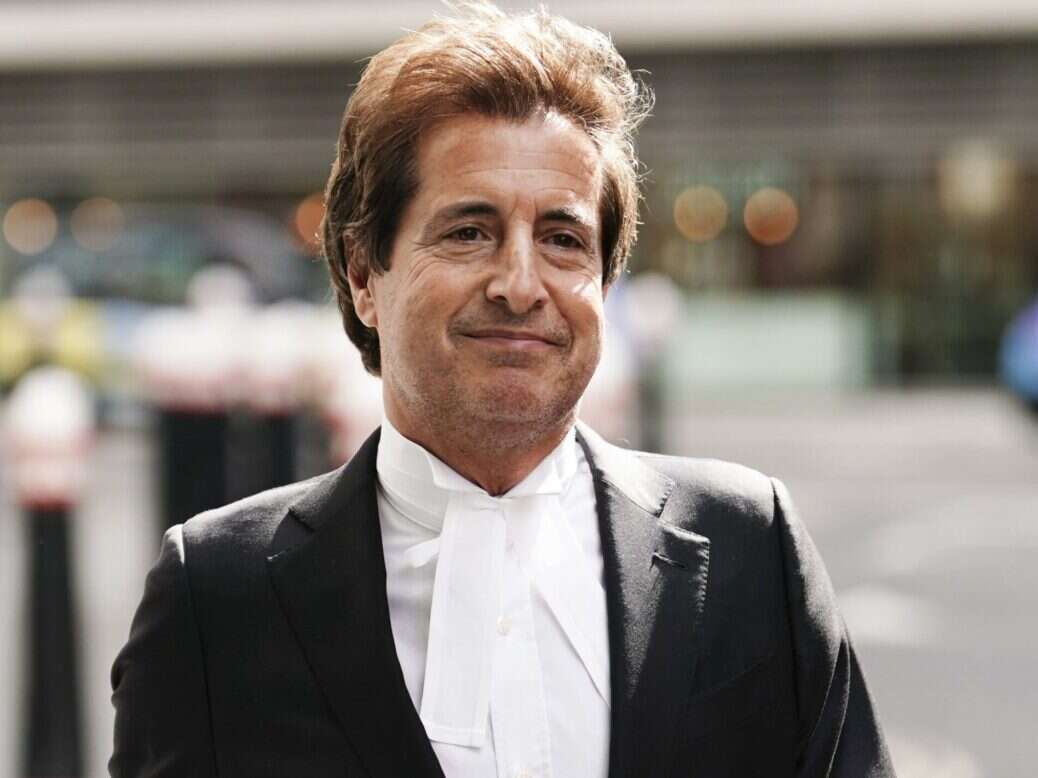
The publisher of the Daily Mail has asked lawyers for Prince Harry to hand over any documents relating to payments or “threats” made for evidence in the legal claim against the news organisation.
The Duke of Sussex, along with a group of six others, including Liz Hurley, Sir Elton John and his husband, David Furnish, are bringing legal action against Associated Newspapers Limited (ANL).
They have accused the publisher of conducting or commissioning unlawful activities such as hiring private investigators to tap phones, “blagging” private records, and burglaries to order.
The group, which also includes actress Sadie Frost, Baroness Doreen Lawrence and politician Sir Simon Hughes, accuse the publisher of a “web of illegal acts”.
ANL firmly denies the allegations and is defending the legal action, previously describing the claims as “lurid” and “simply preposterous”.
On Wednesday, Antony White KC, for ANL, told the High Court that the case is being brought principally as a result of information allegedly provided by third-party investigators.
He asked the court in London to order the group’s legal team to “search for and disclose any documents that relate to payments, royalties or inducements paid, provided or offered, or any demands or threats made, in order to obtain documents, information or other co-operation”.
In written submissions White said a limited number of documents had been disclosed which showed that “payments were made or offered” to “procure evidence and invoices” but “there is good reason to believe that incentives have been offered or paid by the research team more widely.”
Speaking in court, he said that one of the investigators was “paid £16,000 for a series of invoices and her evidence”.
He added that this was “buying evidence from a certain perspective” and for “evidence against newspapers”.
White also asked to be provided with documents relating to when each of the group learned of the potential unlawful information gathering.
He added that “not one of the claimants has disclosed a single document evidencing or referring to the information” they were provided with for their “watershed moments”.
The group’s barrister, David Sherborne, told the court that any documents that were not privileged had been disclosed.
Mr Justice Nicklin replied: “I find it remarkable that there are no documents.”
Prince Harry’s lawyer asks for unredacted documents from Mail publisher
During a two-day preliminary hearing Sherborne made a number of applications including asking for some documents provided by ANL to be unredacted.
He said lawyers for ANL had been “excessive” when redacting documents exchanged between the sides earlier this year.
He told the hearing in London: “The approach to disclosure has shown only a partial picture of the wrongdoing.”
Sherborne added that there was redaction of parts of the documents which are necessary to understand the “true extent of the unlawful information gathering”, which he later claimed was “habitual and widespread”.
In written submissions, the barrister said the “overbroad redactions” by lawyers for ANL had made many documents “incomprehensible or extremely time-consuming to analyse”.
Sherborne also asked for further documents relating to the alleged use of private investigators to be disclosed by ANL.
Sherborne said: “We are talking about a situation where there are huge gaps in the defendant’s disclosure.”
In written submissions, he said: “The defendant’s disclosure reveals clear, systematic and sustained use of unlawful information gathering by private investigators (PIs).
“The defendant instructed multiple PIs whose unlawful activities have been expressly recognised by the courts, with payments spanning decades and involving executives from both of the defendant’s newspapers and numerous journalists.
“This is despite what seems to be a much-reduced pool of documents, which appears to be the result of either very limited searches, non-preservation or what the claimants can only sensibly infer was intentional destruction.”
White said that as well as denying the claims, the publisher has “advanced a positive explanation” for where information in the articles used in the legal case came from.
He said: “Both sides applied redactions to their documents on grounds of irrelevance and legal privilege.
“The defendant also applied a limited number of further redactions to protect journalists’ confidential sources.”
White also said the disclosure “does not require the defendant to disclose material which might assist the claimant in hunting for an ever-expanding case that there were other ‘victims’ of unlawful information gathering”.
Mr Justice Nicklin will give a written judgment on the issues at a later date.
Email pged@pressgazette.co.uk to point out mistakes, provide story tips or send in a letter for publication on our "Letters Page" blog
